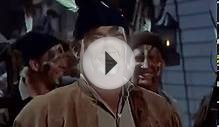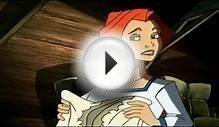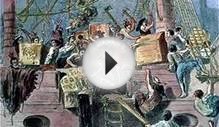
Effects of the Boston Tea Party
On 16 December 1773, colonists in Boston, Massachusetts, boarded three ships full of tea sent by the East India Company and threw the tea into the Boston Harbor. They did so to protest the Tea Act, passed by the Parliament of Great Britain, which practically granted the East India Company a monopoly on tea distribution in the American colonies. The colonists were required to pay a tax on this tea because of the Townshend Acts. One of the first effects of the Boston Tea Party was the passage of strict new laws known as the "Coercive Acts, " which were intended to punish the colonists. This led to many of the later effects, including the formation of the First Continental Congress. The Boston Tea Party was also a major catalyst leading to the start of the American Revolutionary War.
The Coercive Acts, also known as the Intolerable Acts, were intended as punishment for the destruction of property. One of these acts actually shut down trade in the city of Boston until the damages could be repaid. These punitive acts were particularly strict because the British Parliament intended to make an example of Boston in order to discourage other acts of rebellion from the colonies.
These acts led to another of the effects of the Boston Tea Party: the development of the First Continental Congress. This congress was formed with the intent of petitioning the British Parliament in order to have the harsh punitive acts repealed. The petition was ignored, leading to the development of the Second Continental Congress. Between these two Congresses, the American Revolutionary War began, and the Second Continental Congress was highly involved in overseeing the war effort.
In many ways, the American Revolutionary War itself can be seen as one of the effects of the Boston Tea Party. There were many different factors and rebellious acts that eventually precipitated in the war, but the Boston Tea Party was among the most significant. The passage of the Coercive Acts and the subsequent refusal of the British Parliament to repeal them led to a great deal of dissatisfaction from colonists. It is distinctly possible that without the Boston Tea Party, the Revolution would have been delayed for quite some time or may not have even happened at all.
RELATED VIDEO



Share this Post
Related posts
Boston Tea Party Locations
How did the Sons of Liberty disguise themselves at the Boston Tea Party? American Indians. In an effort to hide their true…
Read MoreBoston Tea Party reenactment
December 16th Anniversary Celebration! Friends! Brethren! Countrymen! Join us each and every year on December 16 to celebrate…
Read More










